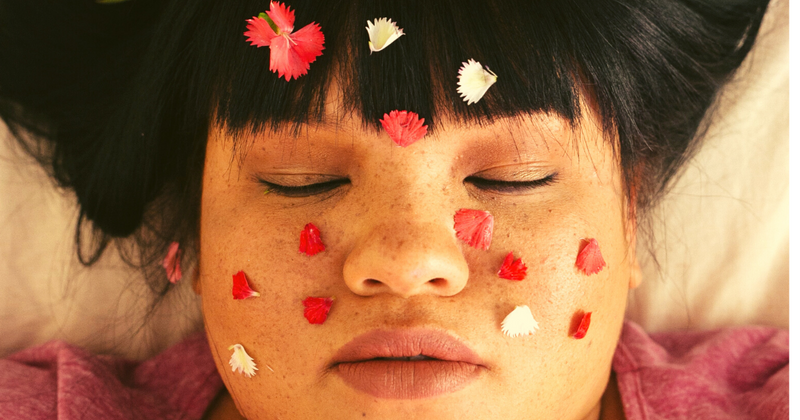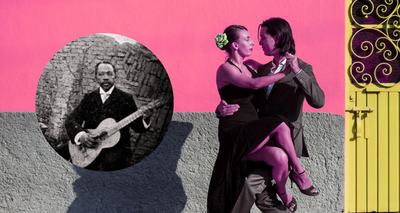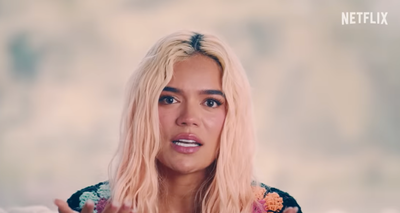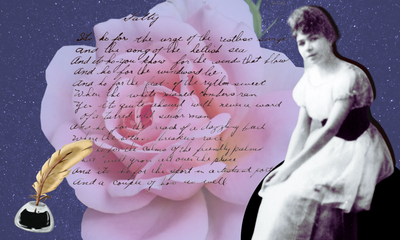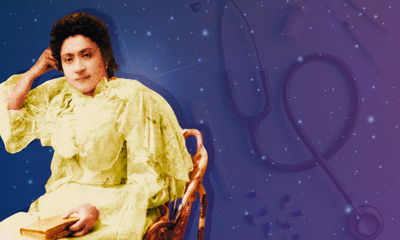It’s hard loving yourself when everyone is telling you otherwise. Here’s to a collective effort of trying to love your lonjitas, tú piel morena—just like I’m trying to love mine.
I remember flaring up my nose in front of my mom, hoping she would flare her nose back at me as a joke. “Pare de ser eso que se va hinchar la nariz y se va ver feo”, she said. I would look at the mirror and cover my nose when I noticed how truly big it was. Yet, what scared me the most was when she stated it would eventually get bigger if I kept playing around. She grabbed me by the nose and pinched it—and repeated this process every time I would flare my nose at her. If it wasn’t my nose, it was my feet. “No ande descalsa que se va hinchar los piez”, she would yell as she would march into my room and exaggeratedly throw the sandals under my feet. Mi nariz indigena and my indigenous feet already felt betrayed at such a young age. It is also no surprise that all the features that were considered “feos” such as having wide noses and feet were anti-black and anti-indigenous. Therefore, unconsciously, whenever my mom would control my face features or would laugh at my feet because they did not arch like hers, it made me feel unworthy of beauty. I was already learning that I was a product of taking too much space and that it was never mine to begin with.
It is difficult learning how to love yourself when everyone around you is not letting you grow or giving you the opportunity to own your thick skin. Every time my mother would tell me to esconder la barriga for pictures, what she really meant was that I did not look good enough because of my weight. Even if it was not her intention to hurt me, my family members played a big role as to how I viewed myself and how the world can interpret that. Holding my breath for five seconds for my family’s pleasure became embarrassing. However, now it became so natural that we, as women, do not realize what we are doing. This is where you re-learn to let go of those breaths, mija. Let them know you are breathing out years of torturous corsets and collectives of women’s survival stories.
To some extent, my mother was conscious of beauty standards. In Colombia, my grandmother would make her stand in the shower for hours, just so the pressure of the water can hit her boobs. “Las pechonas son prostitutas”, she used to tell her. I remember my mother telling me how stupid she thought she was for believing her mother—I said, “you’re not stupid. Now you know better.” This is the key: Unlearning and Re-learning. We learn how Latinas have a stereotype of being hypersexualized and how everyone expects you to “look” a certain way. At such a young age, we had to learn the balance of what being “sexy” means or counter act the stereotypes that were made up for you. I personally had to learn to hide my boobs at a young age because men were already staring at me. I had to learn that young boys did not like hairy arms or legs. I had to learn that my hair always had to look nice or else my mother would call me a “bruja” and not let me go outside the house. However, it is my job to re-learn that I do not have to hide for anybody, re-learn that the hair on body is meant as a garden to protect me from evil, and re-learn that I do not always have to look or act like a “nice girl” that is well put together.
So an important lesson of self-love is that you need to accept that this is a process. All the things that your parents, brothers, family members, or social media has taught you has been very internalized and it is your duty to challenge that every single day with actions, such as writing cute little notes to yourself as a reminder that you are vibrant. It is also difficult not comparing yourself to other women, but trust me—those women are also comparing themselves even if you do not think they are, which also then becomes a toxic cycle of self-hatred. Let it go. Lastly and most importantly, self-love is not only about looks but also about your inner soul. If you find out what you love, what you enjoy doing or what you love wearing, you can find people like you that can help you grow in this process. Personally, if it wasn’t for my compañeras, I would not have been so confident as I am now. Instead of competing with one another, we need to stick with each other now more than ever.
I am still walking in this process of self-love, but now I walk with a kind of pride that was hidden under my indigenous feet for the past twenty-two years. I walk knowing I am still growing, still evolving, forever brillando through my Inca skin and I invite everyone to go on their radical journey of self-reflection.

